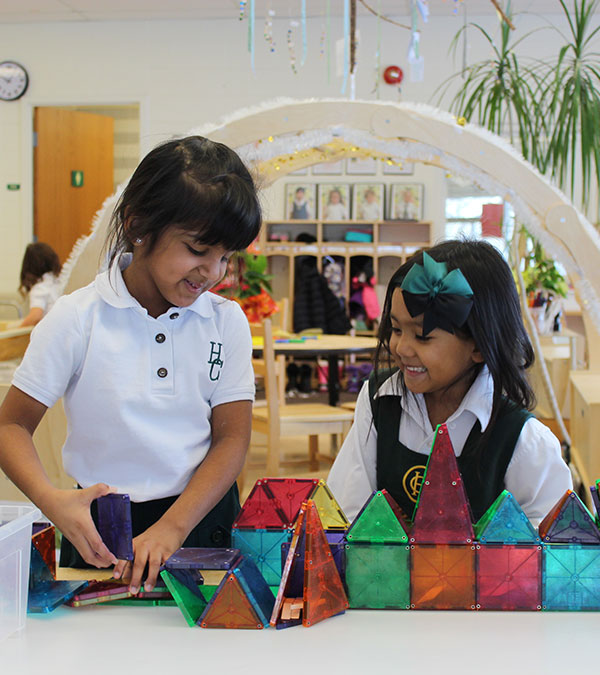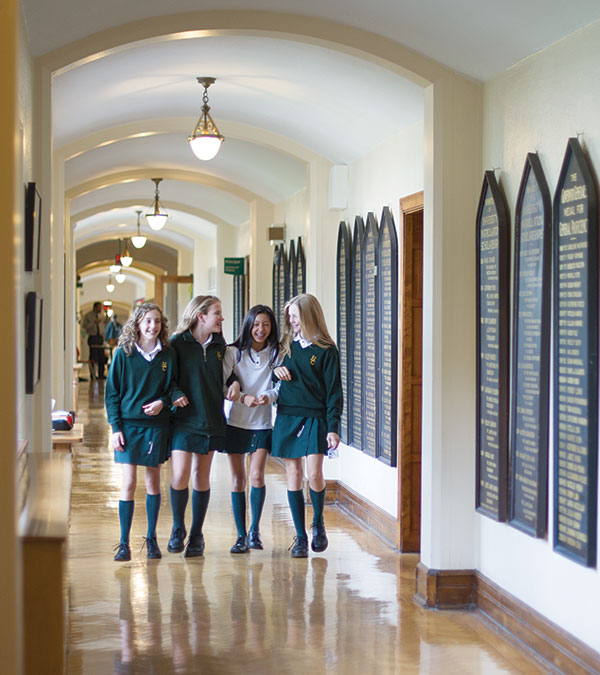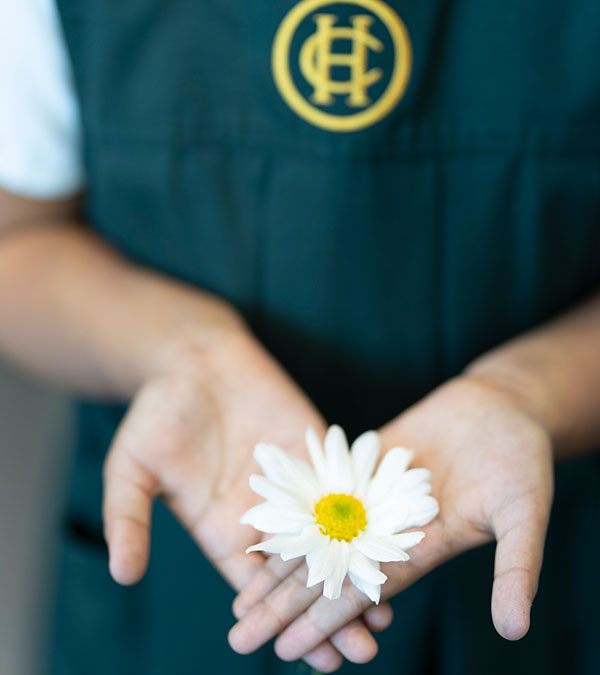Havergal Highlights
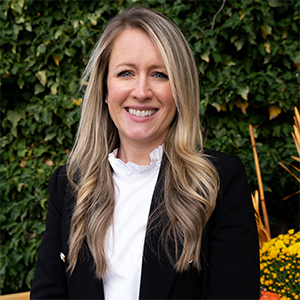
Message from Admissions
Emily Simms-Brown, Executive Director of Strategic Enrolment Management
It has been a busy fall term for the Admission Team—we are now in full swing interviewing and meeting with families, both at Havergal and internationally. We are thoroughly enjoying meeting and speaking with prospective families in-person again and it is hard to believe we are quickly approaching our application deadline.
Last week was Thrive Week at Havergal—a week-long series of events that aim to promote a culture of wellbeing. The theme this year was “Connect to Thrive.” Through various experiences during the week, the programming was designed to ensure students felt a sense of belonging within our community. It was wonderful to see students coming together and furthering their understanding of the ways connectivity supports wellbeing.
As you read through this edition of Havergal Highlights, I think you will feel the optimism that shines through our students and faculty. As a school, our approach to wellbeing ensures we are deliberate and thoughtful in all that we do to prepare our students to make a difference. As we are consistently driven by our values, ensuring that we continue to focus on the wellbeing of our students allows us to educate girls who are prepared to live with compassion, integrity and courage and who have inquiring minds as they discover their own skills, passions and talents.
As we enter into December, we are grateful for all the time and energy our prospective families have put toward this process. We recognize that families in Toronto have excellent school choices and we are glad you are considering Havergal.
Emily
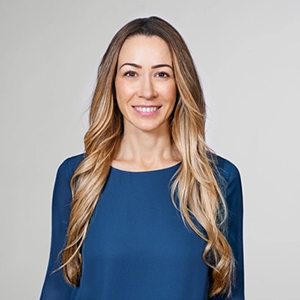
Principal’s Message
Dr. Katrina Samson
For decades, mental health had been studied from a deficit model, something to be “fixed” to get people back to status quo, versus being considered on a continuum, where we can take actions that will weaken or strengthen our mental wellbeing. Research has illustrated, however, that just like our physical health, there are ways to teach and practise strategies that will strengthen our mental health. At Havergal, we are working to learn, teach and embed a host of practices that are scientifically proven to improve wellbeing and build resilience in students, resilience that will serve them well when they encounter challenging periods, such as a heavy academic workload or an unfamiliar social situation.
Just like eating well, getting enough sleep and being active are actions we can take to strengthen our bodies, we can engage in concrete practices to strengthen our mental health. Our faculty and staff are learning about and teaching strategies from positive psychology such as: cultivating gratitude, understanding negativity bias and how to interrupt it, along with identifying and developing strengths, mindfulness and best-self visualization. These positive psychology interventions are part of an education model that recognizes that we can teach, learn and practise those skills that enable us to do good and feel well.
Focusing on health and wellbeing is paramount and necessary in order to realize our mission to inspire and equip young women to make a difference. Even if students study for a week and teachers prepare an engaging lesson, if our girls come to class fixated on mistakes, feeling highly anxious or tired, their brains are not primed to optimize what they are learning and they are not able to perform at their best or extract the same meaning from the content as when they are thriving.
Our approach to wellbeing education is intricately tied to students’ academic learning, and to cultivating an integrated, balanced school approach that emphasizes a liberal arts education to foster creativity, problem solving and rigour, while encouraging broad engagement. This approach helps us foster an appreciation for our strengths and the strengths of others. Our intentional approach to wellbeing is built into our timetables via weekly late starts, reflecting the unique neurological development in teens by building in flex blocks to prompt agency and autonomy, and to begin every morning with community time for connection and relationship building. Furthermore, when a student is struggling and needs direct support, we also have a team in place to respond, including grade-specific Guidance Counsellors, Social Workers, a nursing team, the school doctor, a Child and Youth Worker and Learning Support Specialists. This team of experts works alongside our team of teachers, advisors and the Heads of Schools to support student wellbeing.
As parents, you know your daughters best. Our school-parent partnership works best when we communicate with one another the successes and challenges that our girls are encountering. How can you tell if your daughter needs extra attention and when should you reach out to the school? Maybe she tells you she doesn’t feel connected with her peers or perhaps she has a strong emotional response to something that didn’t previously bother her. These signals tell us it’s time to sit down to talk about how we can build emotional reserves, whether it’s finding an outlet, spotting their strengths or helping them process feelings in a way that doesn’t allow feelings to dictate response.
Throughout this issue of Havergal Highlights, you’ll see in more depth some of the programming designed to support student wellbeing and our plans to expand and strengthen our support for students to ensure that every student thrives at Havergal.
Katrina
Inside Havergal
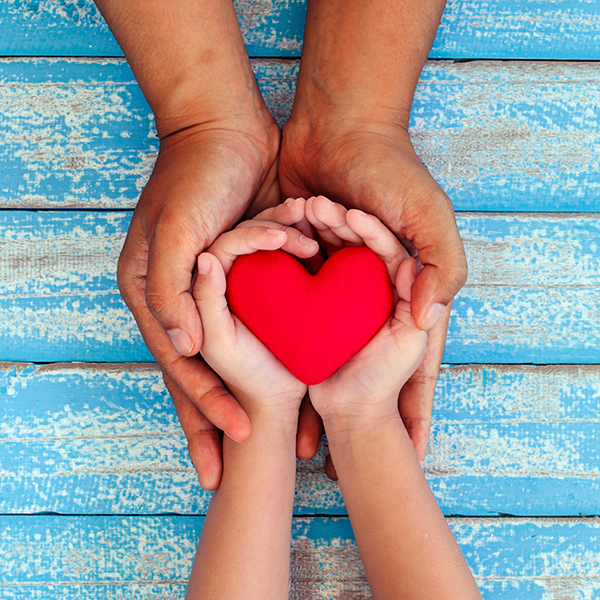
Emotions, Self-Regulation and Wellbeing at the Junior School
Junior School Educators Katie Tranter, Larissa McIntyre and Megan Robar
Now that the school year is well underway, wellbeing is taking many forms in the Junior School. Students engage in opportunities to name and notice feelings and emotions, develop strategies for self-regulation, attend to their health and wellbeing and much more.
The three of us work in partnership with the Health Centre and the Head of the Junior School, Ms. Kate White, on learning how to implement the renowned Yale University RULER approach. This program aims to help students understand the value of emotions, build the skills of emotional intelligence and create and maintain positive emotional climates. The goal of the training is to understand and implement this framework to support the Junior School Wellbeing Program at Havergal College in the coming months and years.
We’re looking forward to Thrive Week at the Junior School (November 21 to 25), which will include activities and conversations around the “Thrive Five”: physical activity, getting a good night’s sleep, eating well, giving back and connecting with others.

Learning Support at Havergal
At Havergal College, we recognize that everyone learns in different ways. Working in tandem with students, we aim to develop their self-knowledge as a learner, encourage confidence and nurture their agency. Students are encouraged to be their own person, challenge themselves and learn from experiences, making efforts to learn from mistakes and celebrate successes.
In conjunction with the school’s Guidance Counsellors, Social Workers, faculty and administrators, the Learning Support Team works to support a student’s identified areas of need—specifically working with students who have psycho-educational assessments and are experiencing academic challenges—to help them learn to understand and use their accommodations.
The Learning Support Specialists:
- help to identify students struggling with the academic demands of classes;
- implement strategies to meet the needs of identified students;
- identify and implement reasonable accommodations and interventions;
- review psycho-educational assessments;
- create Individual Education Plans (IEP) for students with identified learning needs, which identify annual goals and describe the accommodations available for that student;
- co-ordinate and lead meetings with teachers and families to discuss reasonable accommodations and recommendations;
- support the faculty in understanding the learning needs of their students;
- work collaboratively with faculty to develop programming within the classroom;
- review and maintain necessary documentation; and
- work one on one or in small groups with students.
In the Junior School, there are four Learning Support Specialists and one Child and Youth Worker who supports the social/emotional needs of students. This team is supervised by the Head of Junior School Learning Support.
There are two Middle School Guidance and Learning Support Specialists for students in Grades 7 to 8 and there is one Senior School Learning Support Specialist in Grades 9 to 12.
The goal at Havergal is to create a positive and nurturing school culture whereby students become self-advocates for themselves, with the support of a team of professionals to nurture and guide them as they navigate life.
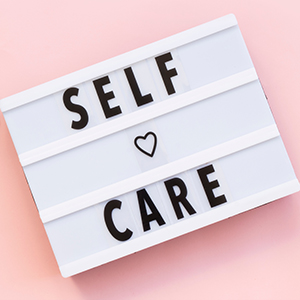
Self-Care: An Important Part of Supporting Academic Success
Caitlin Parsons, Senior School Social Worker
I have no time for that, I have more important things to do, it just takes away from the things I “should” be doing…
These are just some of the endless reasons, often expressed by students when asked if they practise self-care. In the fast-paced world we live in, where not taking a sick day is praised as demonstrating commitment to one’s career, can we really blame our kids for not practising self-care or even seeing the value in it? Especially when we often push our own needs to the side, in response to other demands? As a result, it is not surprising that “self-care” has become more of a buzzword than an actual practice and why more and more individuals find themselves exhausted and struggling with their wellbeing.
What is self-care and why is it important for our students?
Self-care is anything done deliberately to maintain emotional, mental and physical wellbeing. This can include exercising, eating healthily, getting enough sleep and engaging in activities that encourage a healthy, balanced relationship with oneself. However, balanced self-care is more than treating ourselves to a bubble bath or binging on Netflix over the weekend. It involves looking at what we need as a whole person—body, mind and soul—to feel refreshed and recharged on a consistent basis. Put simply, self-care is an important and necessary practice for everyone. When it comes to our students, self-care translates into a more focused, attentive approach to their academics. Students cannot give to their work what they don’t have for themselves.
Because self-care is one of the best ways to help manage stress, studies have shown that the students who practise it consistently report having lower academic stress and tend to perform better in school, compared to those who do not practise self-care. Not only can it help support academic success, but self-care can also help students to be the best version of themselves and cope with the stress that comes with balancing their studies, social needs and general day-to-day lives.
Role modeling self-care practices in our own lives and supporting students to incorporate practices that are “sustainable” in their own lives can be a great first step. So next time you are feeling overwhelmed, instead of trying to just plow through, try taking a pause and asking yourself: “what do I need right now?”
You might be surprised by how big a difference just a few small changes can make in your overall wellbeing.

Mental Health Literacy through Professional Development
Mental health literacy refers to the skills, understanding and knowledge that promote mental health and wellbeing and is a key competency we continue to develop in our community. In September, faculty engaged in mental health training on the 3Rs: “Recognize, Respond and Refer” to help increase our knowledge and skill set to better support student mental health. Our goal was twofold: to ensure our students receive timely, comprehensive support and that our entire community is comfortable recognizing signs of distress, responding with empathy and referring students to the appropriate resources.
A second area of professional development we’ve been focusing on this fall are interpersonal skills. The teaching-learning process in K to 12 classrooms is inherently interpersonal, encompassing teacher-student and peer connections. Given their social nature, classrooms can be an ideal context for teaching social skills such as active listening, collaboration and respect for others. Active listening involves listening, reacting and responding to another individual. It is a way of indicating that you understand what was said and that you’re genuinely interested in the speakers ideas, concerns and opinions. It involves giving them your undivided attention, withholding judgment and being mindful of your facial expressions and body language.
An interpersonal skill that can help us achieve this is the “GIVE” skill. Give is an acronym that stands for the following components:
G: (Be) Gentle—It is essential to be kind and respectful with your child; notice your tone of voice.
I: (Appear) Interested—Be sure to listen and appear interested in your child’s point of view, even if it differs from your point of view.
V: Validate—Validation is one of the most essential tools you can bring to your parenting. Words and actions show that you understand your child’s feelings and thoughts about a situation.
E: Have an Easy Manner—Smile and be light-hearted. Reflect on what you’re hearing in a kindhearted way and show compassion.
Intentionally using active listening and interpersonal effectiveness skills like GIVE helps to increase our students’ sense of psychological safety, creating environments where they are more willing and able to express concerns, ask questions and reach for help. We all want to be seen, valued and heard; these skills may help increase our ability to achieve this.
Highlight
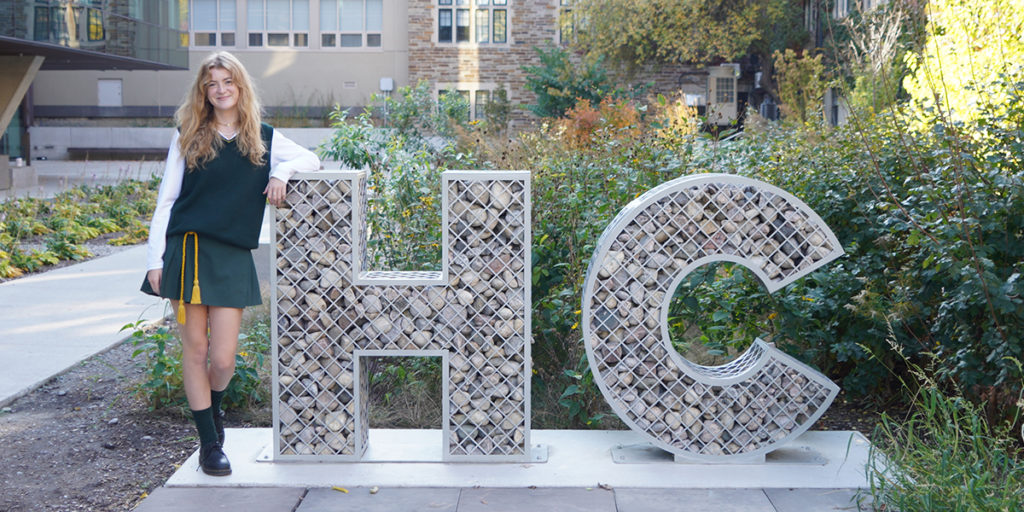
Message from the Wellbeing Prefect
I’m Maddy and I’m this year’s Wellbeing Prefect.
When I first started at Havergal in Grade 9, mental health was one of the greatest obstacles I faced. Although we have excellent wellbeing resources in place at the school, such as our social workers, Ms. Parsons and Ms. Waisglass, I found it difficult to come forward and connect for help until much later in my Havergal journey.
For me, it was a combination of stigma, timidity and a lack of awareness regarding the support available to me that prolonged my struggle.
As Wellbeing Prefect, my main goal is to encourage conversations on mental health issues throughout the student body, with a particular emphasis on students who might not feel as comfortable coming forward or as familiar with Havergal’s wellbeing resources. As we come out of the pandemic—a period which presented a myriad of challenges for all of us—it’s vital that we raise awareness of how we can best improve our wellbeing as individuals and as a community.
The first big wellbeing event this year was Thrive Week in late November, when students had the opportunity to hear from guest speakers, facilitated important conversations on mental health and wellbeing at Havergal and enjoyed spending time with some therapy dogs. Our theme this year was social connection, which presented an opportunity for students and faculty to reflect on how they can work to improve their wellbeing by taking advantage of the community support that surrounds them.
Additionally this year, we’ve assembled the Wellbeing Council, which consists of 10 students from Grades 7 to 12 who are working to integrate student voice into wellbeing programming at Havergal. Whether these council members help plan activities for Thrive Week or gather input from the student body, the Wellbeing Council is an asset to encouraging important conversations on mental health and wellbeing at our school.

